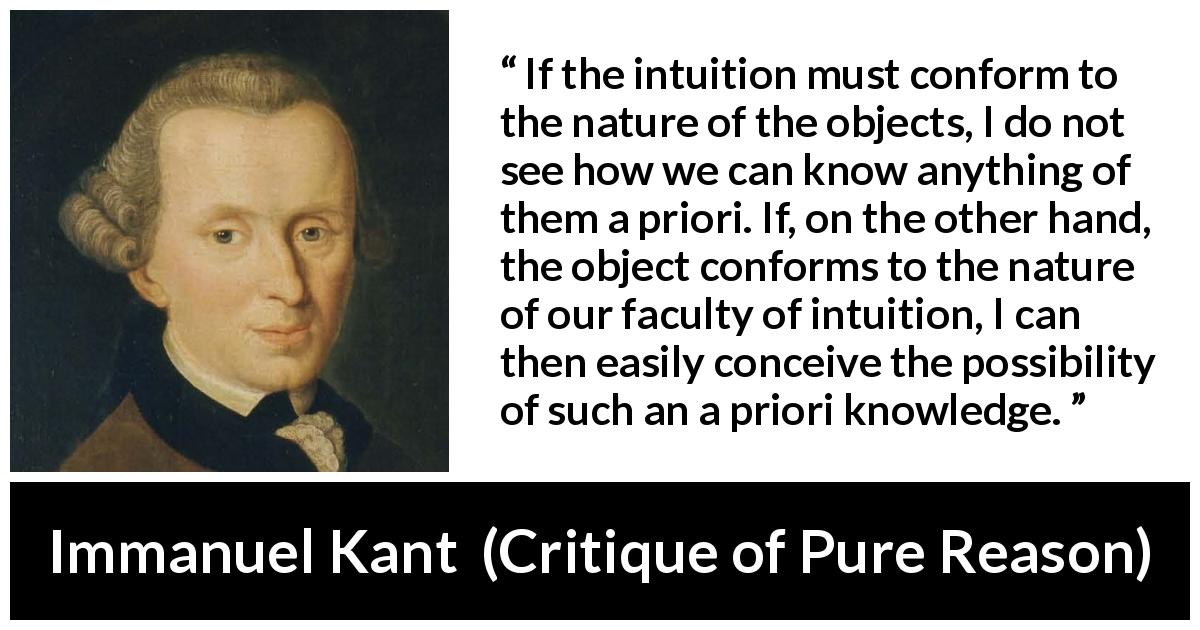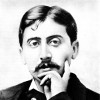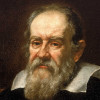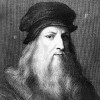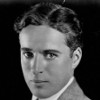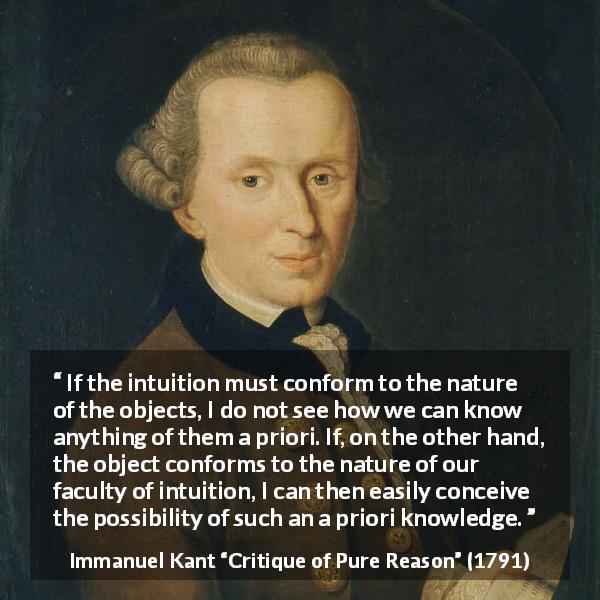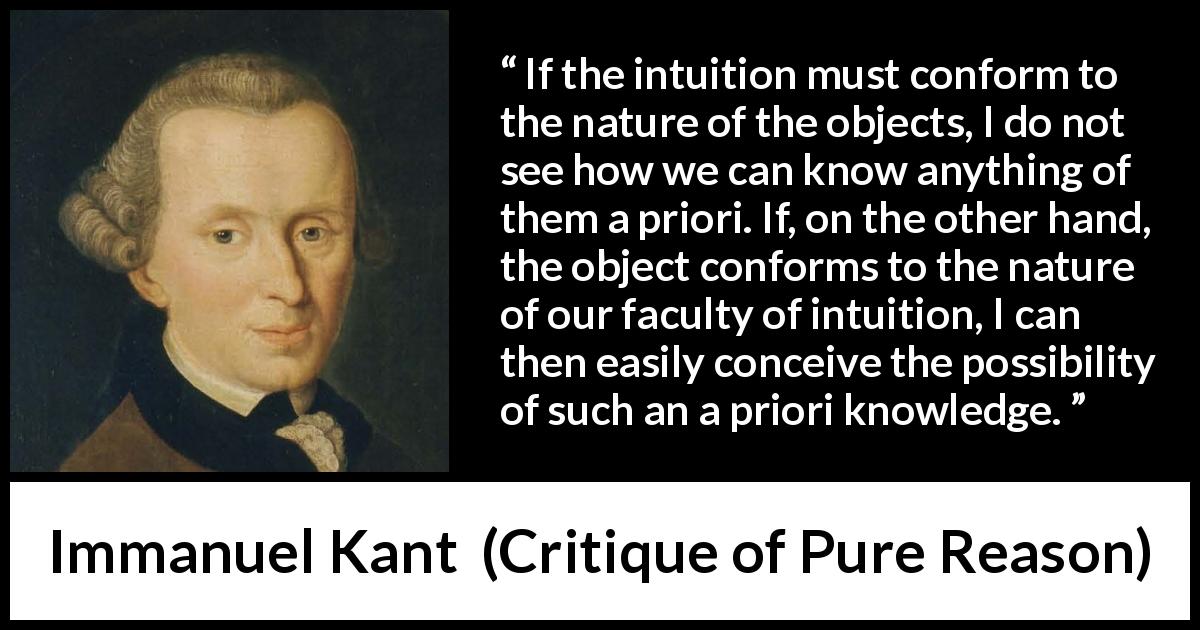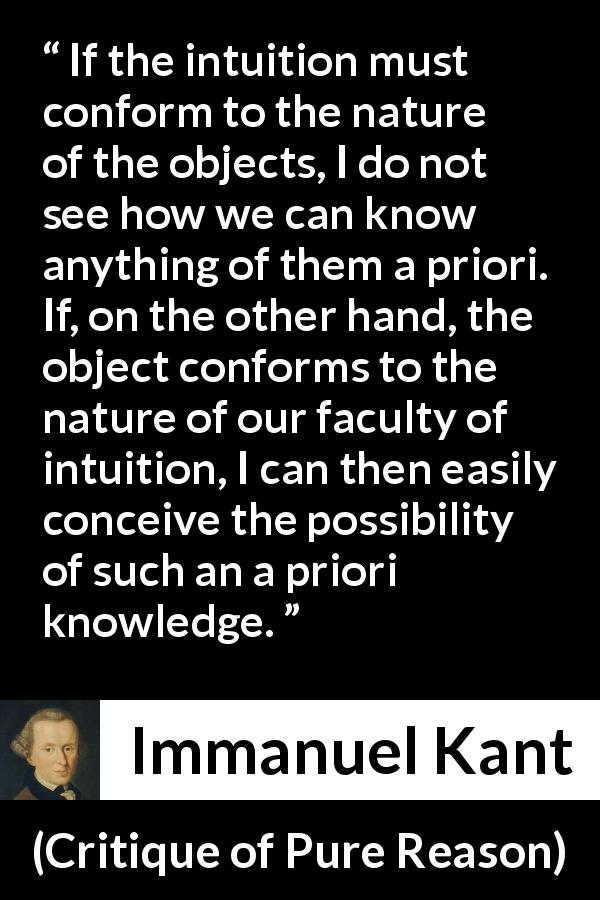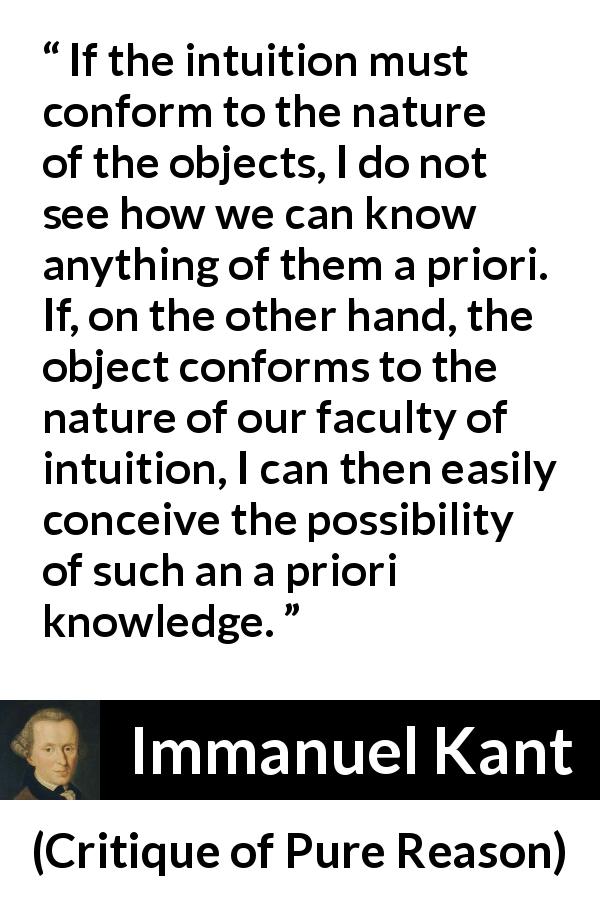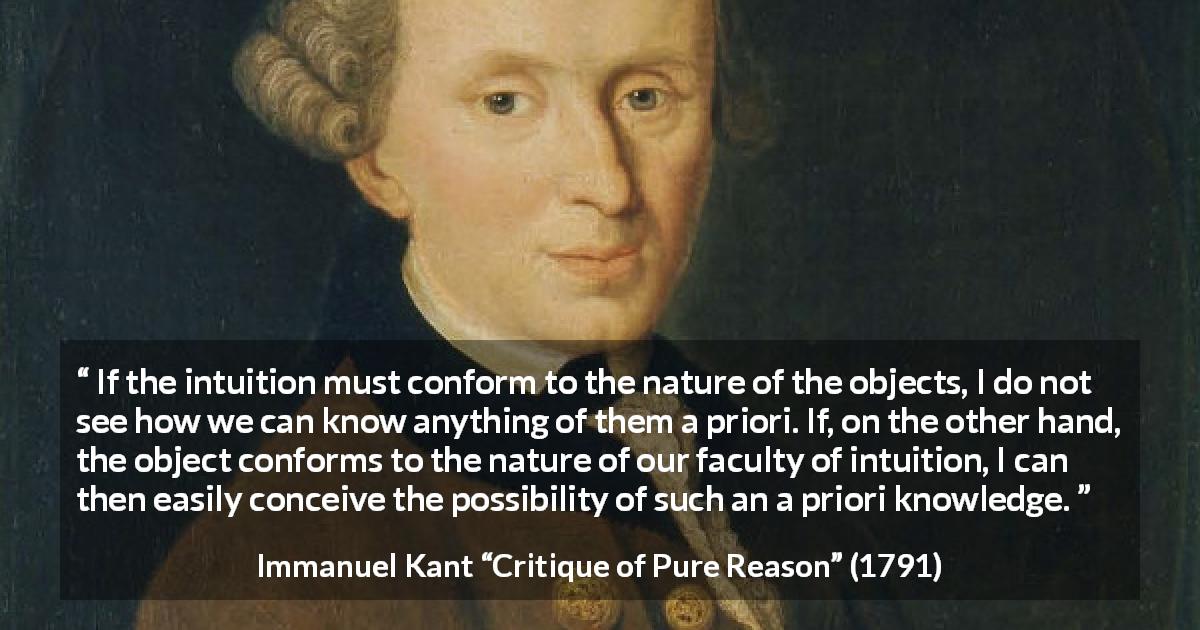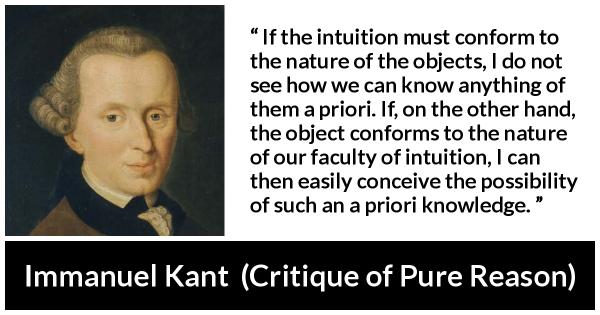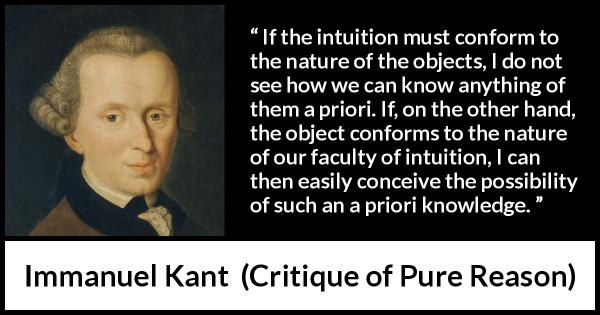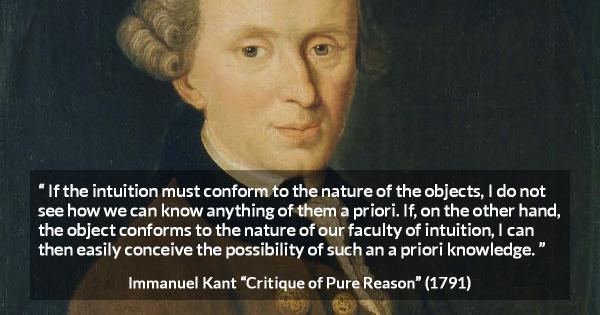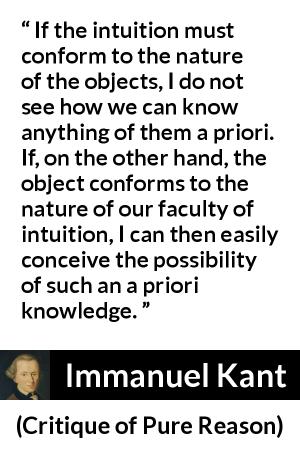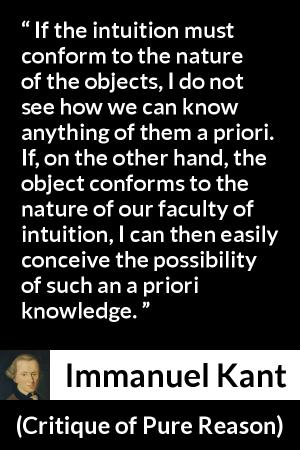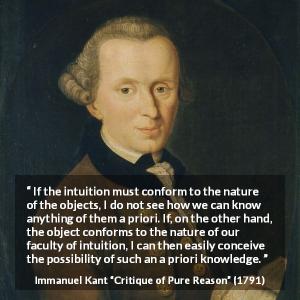“ If the intuition must conform to the nature of the objects, I do not see how we can know anything of them a priori. If, on the other hand, the object conforms to the nature of our faculty of intuition, I can then easily conceive the possibility of such an a priori knowledge. ”
Immanuel Kant, Critique of Pure Reason (1791). copy citation
| Author | Immanuel Kant |
|---|---|
| Source | Critique of Pure Reason |
| Topic | knowledge intuition a priori |
| Date | 1791 |
| Language | English |
| Reference | |
| Note | Translated by J. M. D. Meiklejohn |
| Weblink | http://www.gutenberg.org/files/4280/4280-h/4280-h.htm |
Context
“When he found that he could make no progress by assuming that all the heavenly bodies revolved round the spectator, he reversed the process, and tried the experiment of assuming that the spectator revolved, while the stars remained at rest. We may make the same experiment with regard to the intuition of objects. If the intuition must conform to the nature of the objects, I do not see how we can know anything of them a priori. If, on the other hand, the object conforms to the nature of our faculty of intuition, I can then easily conceive the possibility of such an a priori knowledge. Now as I cannot rest in the mere intuitions, but—if they are to become cognitions—must refer them, as representations, to something, as object, and must determine the latter by means of the former, here again there are two courses open to me.”
source
